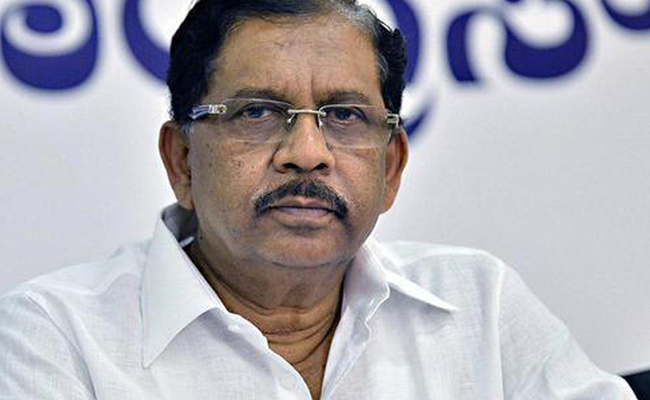
India News

Political leaders, especially those in responsible positions, should be careful with their words. If they speak recklessly, they may face criticism. Ministers, in particular, need to be cautious with their statements; otherwise, the government can gain a bad reputation. Recently, Karnataka's Home Minister Parameshwara made a casual remark that has sparked controversy. What did he say? He claimed that incidents of sexual assault and harassment of women in large cities are quite common.
A few days ago, in Bengaluru’s BTM Layout, a man followed two young women, behaved indecently with one of them, and then fled. The shocked women did not immediately report the incident to the police. However, when a video of the incident went viral on social media, Home Minister Parameshwara responded. He said, "Such incidents are common in big cities... Don't pay much attention to it. The man who harassed the girl has been arrested by the police. We will take legal action. I spoke to the Commissioner over the phone. When such incidents go viral, people’s attention naturally shifts towards them."
The public is now criticizing this casual approach from the Home Minister. The BJP has strongly condemned his statement. Sexual harassment and assault happen everywhere, and there is no specific place for it. Whether in urban or rural areas, the difference is that such incidents tend to have more exposure in big cities. However, when such incidents come to light, the police must take immediate action. If the Home Minister himself says that such incidents are "common," will the police even take them seriously? Those who commit such acts may feel indifferent, thinking that nothing will happen to them.
Sexual harassment can occur on the roads, in workplaces, or in the film industry – no field is exempt. But just because it happens everywhere doesn’t mean it's "common." Many women are suffering from sexual violence and harassment, but very few have the courage to speak out. According to a survey by the Women’s Indian Chamber of Commerce and Industry (WICCI), nearly 68.7% of women employees do not have the courage to file a complaint, whether in writing or verbally, about the harassment they face.
Advertisment